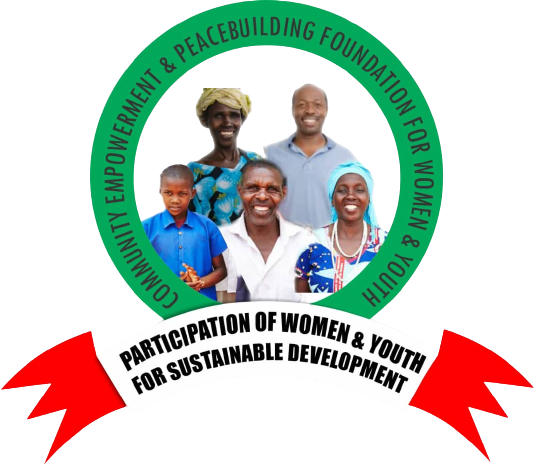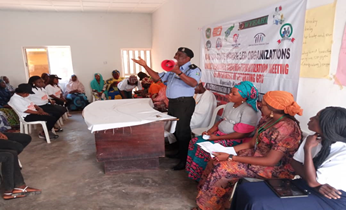The Community Empowerment and Peace Building Foundation for Women and Youth (CEPFoWY) and First Step collaborated to organize impactful initiatives in Mayo-Belwa and Demsa Local Government Areas during the 16 days of activism for the elimination of violence against women and girls. With a shared vision of promoting awareness and taking action against gender-based violence, participants gathered at various locations, rallying for change, empowerment, and an end to violence.
Rally Campaign in Demsa Local Government: The rally in Demsa commenced at Hamma Bata’s Palace, despite the absence of the Emir. Participants marched to the District Head office to enlighten the Emir about the significance of the 16 days of activism as the International Day for the Elimination of All Forms of Violence Against Women and Girls. CEPFoWY and First Step, recognized for their efforts in reducing malaria among pregnant women and children, chose to observe the day in Demsa to raise awareness and sensitize the community about the pressing need to combat gender-based violence. The District Head expressed resolute support for the rally, emphasizing the importance of women’s full participation in all aspects of development.
Engagement in Mayo-Belwa Local Government: In Mayo-Belwa, an impactful awareness creation and sensitization meeting took place at Ardo Clinic. With the participation of 105 individuals, including 33 males and 72 females, the meeting addressed Gender-Based Violence (GBV) comprehensively. Participants delved into various forms of GBV, including denial of resources, wife battering, harmful traditional practices, forced or early marriage, and more. The meeting shed light on the root causes of GBV, emphasizing the significance of recognizing societal norms and unequal power dynamics that contribute to this issue.
During the meeting, the importance of prompt reporting of GBV cases was emphasized. Attendees were provided with contact information for Mayo-Belwa Cottage Hospital and Hope Centre Yola, ensuring that survivors had access to the necessary support and assistance. The participants expressed gratitude for this crucial knowledge and pledged to break the silence surrounding GBV.
Support and Commitment: Both the rally campaign in Demsa and the awareness meeting in Mayo-Belwa witnessed the enthusiastic participation of various groups dedicated to promoting peace, equality, and justice. Notable attendees included the Nigerian Police Force, NYSC members, Boys Bridget, the Nigerian Red Cross, JNI, women’s groups, and the Civil Defense. The collective presence of these organizations underscored the significance of collaborative efforts in fostering positive change.
These events marked significant milestones in the fight against gender-based violence in Mayo-Belwa and Demsa Local Government Areas. The rally campaign in Demsa drew attention to the urgent need for change and women’s empowerment, while the awareness meeting in Mayo-Belwa provided a platform for raising awareness about GBV and encouraging reporting. The resolute determination exhibited by the participants exemplifies their commitment to creating safer and more equitable communities.
By standing together and advocating for equality, we can strive towards societies where every individual is respected, empowered, and free from violence. The efforts of CEPFoWY, First Step, and all the participants highlight the importance of unity and collaboration in achieving lasting change. With continued support and ongoing initiatives, substantial progress can be made in eradicating gender-based violence and providing support to survivors throughout the region.

